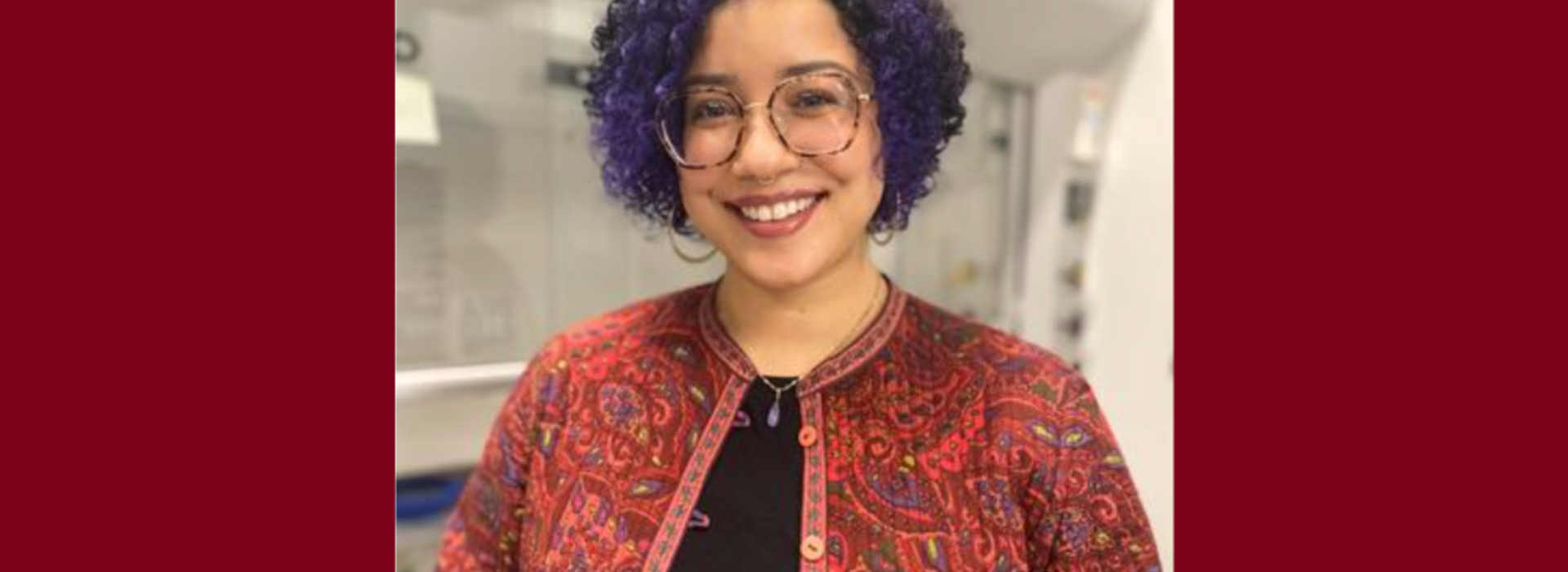
Nicole Quintus and Advisor Dr. Patrick Rothwell Named 2024 Gilliam Fellows
The Howard Hughes Medical Institute (HHMI) recently announced Nicole Quintus, a PhD student in the Department of Neuroscience at the University of Minnesota Medical School, as one of its 2024 Gilliam Fellows. This prestigious fellowship is awarded to exceptional doctoral student and faculty advisor pairs who are committed to advancing diversity and inclusion in the sciences. Quintus received the fellowship along with her advisor, Patrick Rothwell. Support from the Gilliam Fellowship will fund Quintus’ education for three years, with the faculty-student pair being awarded $53,000 annually. The recognition is a testament to the team’s mutual dedication to diversity in science and passion for neuroscience.
Quintus’s journey into neuroscience was far from linear. Growing up in Chandler, Arizona, with a childhood marked by an international move to Hong Kong, she initially pursued a different path.
“I wasn’t aware that neuroscience was something you could study before I started my undergraduate degree,” Quintus admits. “It just wasn’t on my radar."
She signed up for a prerequisite neuroscience course after seeing it advertised on a poster in one of the science buildings on campus, and that class set her on a new path.
“The transition to neuroscience came with a lot of academic challenges, and I worked hard to overcome those throughout my undergrad,” she recalls. “I knew that earning my degree would open doors for me, and that kept me going.”
Despite the challenges, Quintus persevered and developed an interest in the molecular underpinnings of the human brain, which led her to pursue a career in neuroscience.
Her determination paid off as she continued to pursue her passion, completing a Master of Science degree in Clinical Translational Science at the University of Arizona Phoenix Biomedical Campus. Her prior experience led her to the U of M, where she has been making significant strides in her research. Her work, which focuses on understanding the neural mechanisms underlying anxiety- and depressive-like behavior, has the potential to contribute to breakthroughs in treating neuropsychiatric conditions such as major depressive disorder. She attributes her interest in the U of M to early conversations she had with her advisor, Dr. Rothwell.
“We had similar research goals and were both very adamant about advancing equity and inclusion within neuroscience. I was sure that we would work well together as an advisor-student pair,” she says.
Being named a Gilliam Fellow is an honor that Quintus does not take lightly. The fellowship is not only a recognition of her academic achievements but also her commitment to fostering diversity, equity, and inclusion within the scientific community. The Gilliam Fellowship program empowers promising students to be leaders within their fields by providing them with leadership training, conference travel, an alumni network, and professional development. Quintus plans to use the support she receives from this fellowship to ensure that scientific research is accessible to all.
“After all, science is for everyone,” Quintus says.
For Quintus, this aspect of the fellowship resonates deeply.
“Diversity in science is so important, truly paramount,” she emphasizes. “Science thrives when people with unique backgrounds and experiences bring their perspectives to the table. It’s not just about making science more inclusive; it’s about making science better.”
She aspires to someday lead her own research team and combine her love of science with advancing the careers of marginalized scholars.
“Systemically marginalized scholars often face hidden barriers, and navigating those can be so tiring.” Quintus shares. “I want to contribute to spaces for joy and celebration, and provide relief from the day-to-day challenges we all face. This is one of the ways we can decrease the attrition of underrepresented scientists.”
Looking forward, Quintus hopes to use the resources and network provided by the Gilliam Fellowship to further her research and contribute to the broader scientific community. She is particularly excited about the opportunity to mentor students, especially those from underrepresented backgrounds. As a student mentor in the Minnesota Inclusive Neuroscience Development Scholars (MINDS) Program at U of M, which provides a funded, two-year research experience to college graduates from underrepresented backgrounds, Quintus has advised post-baccalaureate students through the graduate school application process.
“They bring so much expertise and enthusiasm to the table,” Quintus shares. “It’s a delight to see each scholar find their path in science. I’ve had incredible mentors who have guided me through my journey, and I want to do the same for others. The Gilliam Fellowship is not just an opportunity for me; it’s a way to pay it forward.”